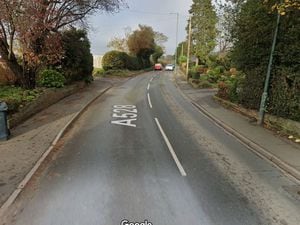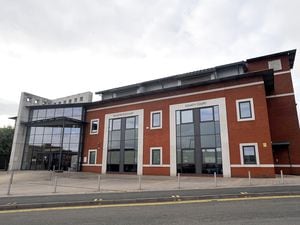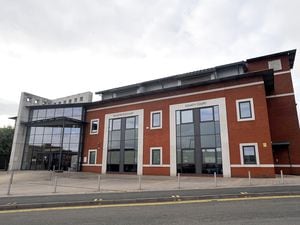New police federation chair speaks of privilege at taking on new role
The region's new police federation chair has said it is a 'privilege' to take on the role.

Sergeant Steve Butler has taken over the position as West Mercia's Police Federation chairman from Barry Horton, who stood down earlier this year.
He said: “I feel privileged to hold the role. It’s been a whirlwind start but I’m really looking forward to it and hopefully making a difference for our members.”
The federation said Steve brings a wealth of experience as a police officer, a federation rep, and a career away from policing to the role.
He worked for 17 years outside the service as an electrical fitter, a tendering engineer and then a business development engineer in the energy management and automation industry.
He joined West Mercia Police in 2002 and has worked across a number of teams and roles, including patrol shift officer, safer neighbourhood officer, the violent crime unit, the burglary prevention team and also as youth inclusion officer and police cadet leader.
“I have always had a sense of what’s right and wrong, and helping people led me to join the police,” he said.
“I wanted to help people and make a difference – it certainly wasn’t about the pay and perks.
“With the job I left, I had a company car, health insurance, a laptop – but when I joined West Mercia we had no computers. We were writing things down. No one put that on the job description!”
Steve also has a strong background with the federation.
He has been a rep for 13 years, almost five of which were as branch secretary, until he stood down in March last year.
“I joined the federation because back then I felt there wasn’t enough support,” he said.
“I felt it was more about the politics and not the detail of supporting members.
“I wanted to help people and came as a hands on.
“Now, as chair, I have to balance that a bit more.”
He added added: “I initially wanted to be chair in 2018, but that role went elsewhere. Now is the right time and I’m really proud to be taking it on.
“One of my priorities is to ensure that local members’ voices are heard and that the federation is even more visible to our members.”
He said that another priority is the welfare and wellbeing of members, adding that one of the reasons he became a rep in 2011 was because he ‘didn’t like how officers have been treated’.
“I’ve always had a drive towards supporting members, and also to look after their mental health," he said.
“I’m a keen advocate of mental health, having had some issues myself. I’ve seen first-hand that needs to be right.
“Welfare is the force’s duty. It’s easy for the force to talk a good game and put posters up, but I want to work with the force to get some tangible outcomes."
He added: “The new disclosure guidance is putting more and more work on officers.
“Delays in court cases have a massive impact on officers being able to take leave.
"They’re booking cases for two years in, they get cancelled and moved around and the poor officer who is booked in to give evidence at the trial, it’s horrendous for them.
“The demands on others through other services, such as mental health, social care. We’re that service of last resort.
“From a federation perspective, it’s important for us to be talking about these issues on behalf of our members.”
Steve stressed that the support offered by the Federation to members was much more than just that provided around conduct and discipline.
“We’re able to have difficult conversations with the force that sometimes members don’t want,” he explained.
“With the influx of new officers, I think that’s become more important because sometimes they fear asking questions of their supervisors.
“Helping officers returning to work, dealing with reasonable adjustments, restricted duties, we do a lot of work in that area.
“We do a lot of health and safety, equality.
“Our reps are trained to support officers. We know about policies, guidance.
“All too often, police officers haven’t got anyone on their side, so it’s supporting them, it’s reiterating and reinforcing what their rights are and what help there is.”





